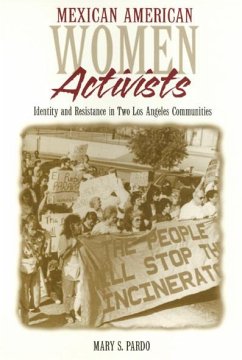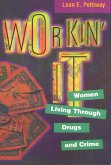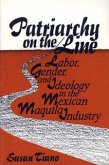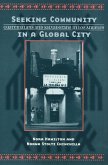The story of Mexican American women in two communities who took control and made a difference When we see children playing in a supervised playground or hear about a school being renovated, we seldom wonder about who mobilized the community resources to rebuild the school or staff the park. Mexican American Women Activists tells the stories of Mexican American women from two Los Angeles neighborhoods and how they transformed the everyday problems they confronted into political concerns. By focusing on women in two contiguous but very different communities -- the working-class, inner-city neighborhood of Boyle Heights in East Los Angeles and the racially mixed middle-class suburb of Monterey Park -- Pardo is able to bring class as well as gender and ethnic concerns to bear on her analysis in ways that illuminate the complexity of mobilizing for urban change. Unlike many studies, the stories told here focus on women's strengths rather than on their problems. We follow the process by which these women empowered themselves by using their own definitions of social justice and their own convictions about the importance of traditional roles. Rather than becoming political participants in spite of their family responsibilities, women in both neighborhoods appeared to have greater power because of their responsibilities, social networks, and daily routines separate from the men in their communities. Pardo asserts that the decline of real wages and the growing income gap means that unfortunately most women will no longer be able to focus their energies on unpaid community work. She reflects on the consequences of this change for women's political involvement, as well as on the politics ofwriting about women and politics.
Hinweis: Dieser Artikel kann nur an eine deutsche Lieferadresse ausgeliefert werden.
Hinweis: Dieser Artikel kann nur an eine deutsche Lieferadresse ausgeliefert werden.








